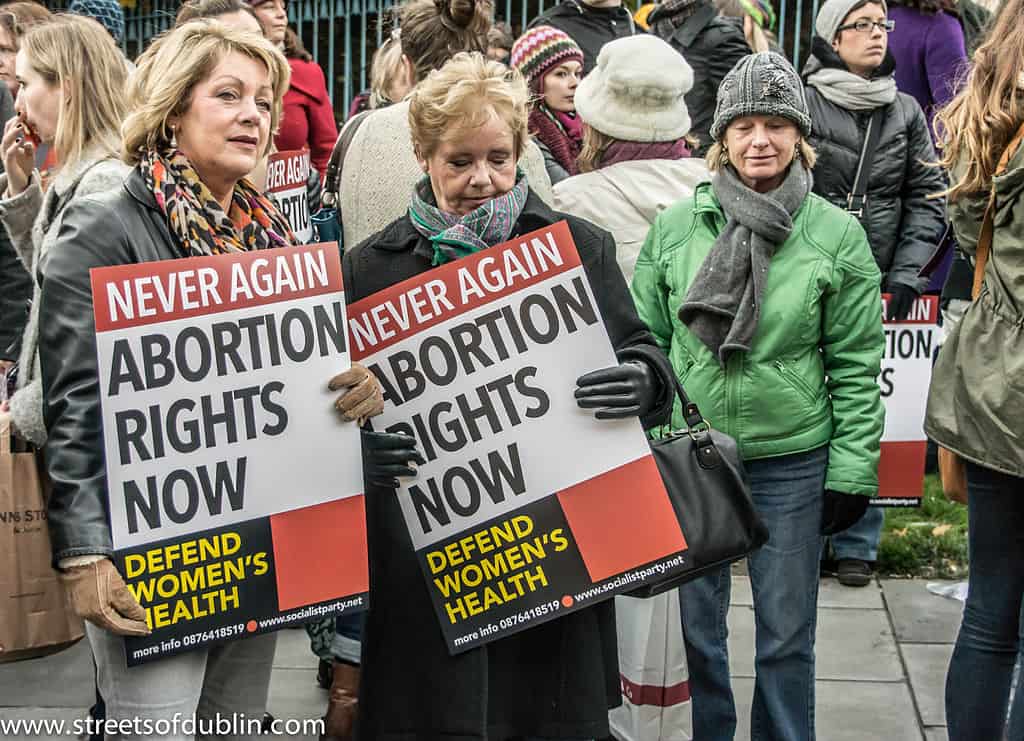College Voices
Ireland Abortion Referendum

After nearly 35 years of abortions being ruled illegal by the government, thousands from the Republic of Ireland flocked to polling stations and voted overwhelmingly in favor of replacing the nation’s Eighth Amendment which gave both the mother and the unborn the equal right to life back in 1983. Last Friday, in the historic Dublin Castle, this landslide victory was announced by Returning Officer, Barry Ryan, who is responsible for overseeing elections for the nation’s parliament.
Before this divisive referendum concluded, previous law banned abortions unless the woman’s life was at risk during the pregnancy. In cases of rape, incest, or fatal abnormalities in the fetus, abortions had still been prohibited up until this vote. As a result, thousands of Irish women had to travel to Britain in order to have the procedure done.
In a statement made after polls closed and the results were revealed, Prime Minister, Leo Varadkar, said it was, “…a historic day for Ireland,” and called the vote “…a quiet revolution.” He added that with this outcome, the Irish people “trust and respect women to make their own decision and choices… It’s also a day when we say no more. No more to doctors telling their patients there’s nothing that can be done for them in their own country, no more lonely journeys across the Irish Sea, no more stigma as the veil of secrecy is lifted, and no more isolation as the burden of shame is gone.”
Usma Hosain, an employee for the National Association for the Repeal of Abortion Laws Pro-Choice America (NARAL) of Baltimore, had this to say about the voting and what it means for the world and what it holds for the future;
“I think that this vote was long overdue. With our increasing knowledge on reproductive health and why women choose to get abortions, this has been a long time coming. Regardless, I’m glad that this happened of course, and happening after 35 years is really substantial. This is a step in the right direction and Ireland empowering their women to be able to make choices based on their own bodily autonomy will hopefully ignite passion in other women around the world to be able to achieve that same right. This vote gave a lot of people hope.”
When asked if she believes that such a monumental overturn could have an impact on U.S. abortion and planned parenthood legislation, Hosain said, “In an ideal world, I believe that it should and it would. However, given our current administration and how far back they are trying to move us in terms of abortion, I’d say that happening is pretty bleak. A new administration, not even a democratic one but just a more progressive group of leaders would need to be in power for such legislation to change.”
Also on their agenda regarding abortion, the Republic of Ireland’s government is looking into trying to give the women of Northern Ireland access to these upcoming abortion services. Northern Ireland currently has the strictest anti-abortion laws in the United Kingdom.
However, this vote is not being hailed as a triumphant victory for women by many, but instead a tragedy of historic proportions. The main campaign countering the liberalization came to be known as the “Save the 8th Campaign.” While noting that no further protests would continue from his campaigners, John McGuirk, the spokesman for this group, stated, “The unborn child no longer has a right to life recognized by the Irish state.”
Amongst the religiously conservative, the repeal of the Eighth Amendment is being condemned and even called “heartbreaking,” especially by many Catholic priests. Others are calling for those who voted in favor of legalizing abortion to not marry in a church. While the waning influence of the church continues to conflict with many on this topic, Pope Francis is due to visit Ireland in three months. It will be his first papal visit to the country since their undoing of these past laws.
“Religious conservatism has been known to be vehemently against abortion and its legalization, but it has been due to its orthodox and rather outdated beliefs. Their lack of recognition of abortion as a women’s healthcare issue has left them with a myopic view on the subject,” said Melba Diaz, a former employer for a grassroots campaign that aided Planned Parenthood’s Action Fund.
“The repealing of anti-abortion laws shows that society is changing, and as we learn more about women and their bodies, we should adjust our ideals accordingly. From a progressive standpoint, one can observe that abortion is a much more complex issue that is addressed on a case to case basis and is not limited by the old-fashioned beliefs of the Church. And this is all coming from a woman who grew up in Puerto Rico where religion is a big part of most people’s lives,” Diaz stated.
Expecting such outcry, PM Varadkar went on to say in the address to his people, “I know today is not welcome and you may feel this country has taken the wrong turn, that this country is one you no longer recognise…I want to reassure you that Ireland today is the same as it was last week, but more tolerant, open and respectful.”
The Irish parliament is now working on the new legislation that would officially liberalize the abortion laws and put them into place.

